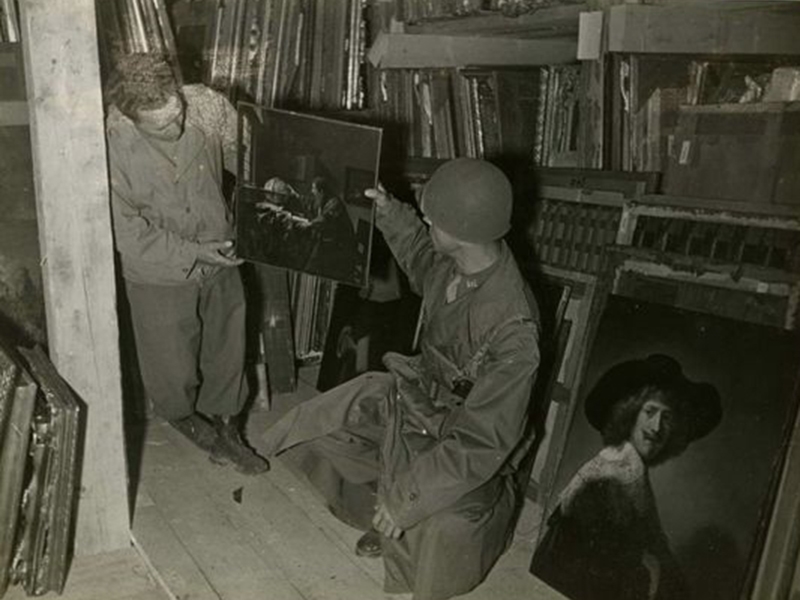One widespread notion of looted art conjures images of Nazis carrying off priceless Rembrandts and Vermeers amidst the chaos of World War II. While this practice was common, as detailed in books and films like The Monuments Men, art theft has occurred within the networks underpinning the art world since before the modern art museum.
Looted Art, the first official Honors College forum taught at the U of A Rome Center, surveys the communities behind creating and consuming European fine arts, including those outside the law. Led by Consuelo Lollobrigida, a faculty member in art history at the Rome Center, the course looks at the public and private institutions that have sponsored artistic innovation from Antiquity through the Postwar era.
"Students learn the history of collecting, the origin of museums, the dispersion of European historical collections and the birth of US museums," Lollobrigida noted. "The art market, the trade (legal and illegal) and the economic development of art . . . the course covers many disciplines: art, sociology, history, economics, law, criminology."
As its title suggests, Looted Art also addresses the unique topic of art crime and its relationship to the international art market.
"The Looted Art Honors Forum has revealed to me a secret world of politics and organized crime hidden behind the unexpected bargaining power of a valuable piece of stolen art," noted Casey Hanauer, an architecture major and sustainability minor from Collierville, Tennessee, enrolled in the course. Students embark on a field trip to the headquarters of the Carabinieri Art Squad, an Italian military unit in charge of protecting, controlling and preventing the illegal art trade. Other site visits include a local art auction house and the export office of Rome.
Francesco Bedeschi, director of the Rome Center, noted that hands-on courses like Looted Art truly further the center's approach to experiential learning and preparing students for a globalized society. Studying in a historic city such as Rome offers students direct engagement with a new history and culture.
"Our curriculum is designed to ensure degree progression, enriched by local experts who provide unique, hands-on learning experiences," he said. "This not only enhances students' educational journey but also equips them with vital global competencies."
About the Honors College: The University of Arkansas Honors College was established in 2002 and brings together high-achieving undergraduate students and the university's top professors to share transformative learning experiences. Each year the Honors College awards up to 90 freshman fellowships that provide $80,000 over four years, and more than $1 million in undergraduate research and study abroad grants. The Honors College is nationally recognized for the high caliber of students it admits and graduates. Honors students enjoy small, in-depth classes, and programs are offered in all disciplines, tailored to students' academic interests, with interdisciplinary collaborations encouraged. All Honors College graduates have engaged in mentored research.
About the Rome Center: Since its inception in 1992, the Rome Center has served as a premiere locale for transformative study abroad experiences for University of Arkansas students. Originally founded exclusively for architecture students, the center was expanded for students from across the university in 2016. Students can study abroad at the Rome Center during the fall, spring and summer semesters, with courses offered across the university's academic disciplines. For more information on studying abroad at the Rome Center, visit their website.
About the Graduate School and International Education: The Graduate School and International Education facilitates transformational experiences and opportunities for all graduate students, all international students and all domestic students studying abroad through programming and support, collaboration with campus partners, and advocacy. The school advances the university's academic and research enterprise by attracting, recruiting and retaining top-notch graduate students, in addition to recruiting and supporting a thriving international student population that brings diverse cultures and perspectives to our campus - and to Arkansas. GSIE also connects domestic students with study abroad experiences, sending them across the world to experience new cultures and experiences that will forever change their lives. To learn more about how GSIE transforms lives, visit www.gsie.uark.edu.
Contacts
CD Eskilson, editor
Honors College
479-575-7678,
